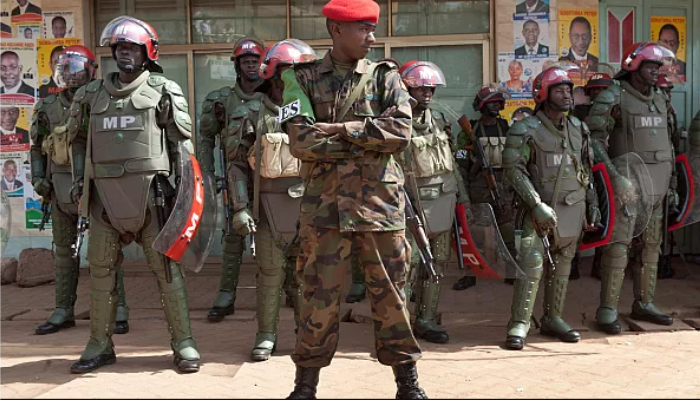Uganda’s Parliament has passed a controversial government-backed bill reinstating the military’s authority to try civilians, despite fierce opposition from human rights advocates and political critics who warn it could deepen authoritarian rule ahead of the 2026 elections.
The new law, approved on Tuesday, allows civilians to face military tribunals if accused of offenses “in support of or in association with individuals under military law.” The bill mandates that military court officials must now have formal legal training—an apparent attempt to address earlier concerns about judicial competence.
Supreme Court Ruling Overturned by Legislation
This legislative move follows a landmark ruling by Uganda’s Supreme Court earlier this year, which declared it unconstitutional for civilians to be tried in military courts. The court emphasized that military tribunals are not equipped to handle civilian justice due to a lack of legal expertise.
However, the government swiftly responded to the ruling by drafting legislation to reverse the decision. President Yoweri Museveni, who has ruled Uganda since 1986, denounced the court’s judgment, stating, “The country is not governed by the judges.”
Opposition and Human Rights Groups Condemn Move
Opposition lawmakers walked out of Parliament during the vote, denouncing the bill as a direct assault on Uganda’s constitutional order. Critics argue the new law blurs the lines between military and civilian justice and could be used to silence political dissent in the run-up to the 2026 general elections.
Amnesty International issued a stern warning, stating the reinstatement of military trials for civilians may “entrench repression ahead of the 2026 elections.” Ugandan rights group Chapter Four added that the legislation improperly expands military court jurisdiction and undermines judicial independence.
Museveni’s Grip Tightens Ahead of 2026 Elections
President Museveni, now 80, is widely expected to run for another term in the January 2026 elections. Political analysts suggest this move could be part of a broader strategy to suppress opposition forces and consolidate power amid growing uncertainty over his succession.
There is speculation that Museveni may eventually hand over power to his son, Gen. Muhoozi Kainerugaba, the current commander of Uganda’s armed forces. Kainerugaba has publicly hinted at his presidential ambitions, raising concerns about a possible dynastic transition of power.


